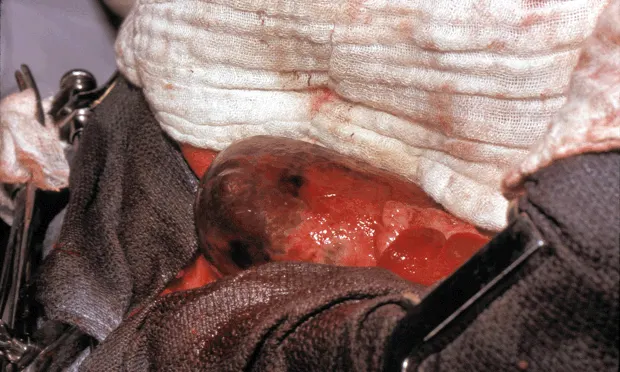Emphysematous Cholecystitis in the Dog

Emphysematous cholecystitis is a necrotizing inflammation of the gallbladder caused by a gas-forming bacterial infection that severely damages the gallbladder wall. It is usually accompanied by cholangiohepatitis, which can occur because of an ascending infection from the small bowel or by hematogenous spread of an infection occurring elsewhere in the body. Clinical signs include gas in the gallbladder as shown in the accompanying radiograph (arrow), fever, decreased appetite, occasional vomiting, and discomfort of the anterior abdomen. A ruptured gallbladder will magnify the extent of clinical illness. Treatment entails patient stabilization with antibiotics and intravenous fluids and surgical removal of the infected gallbladder, especially when it is grossly discolored as shown in the photo. A reported mortality rate of 39% is most likely due to delayed diagnosis.
